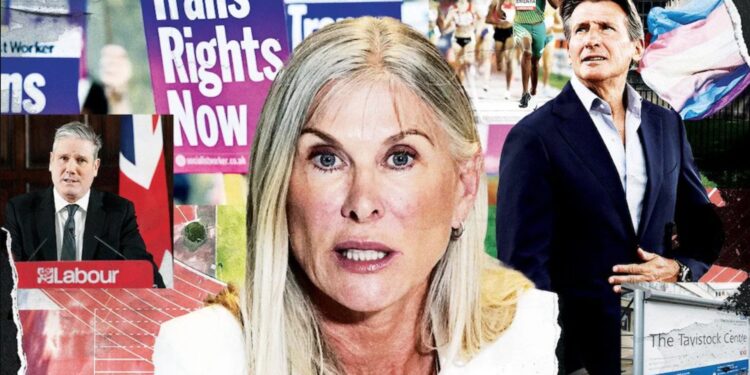Harry de Quetteville has written an important piece in the Telegraph about the “end of the beginning” of the gender war. Here’s an excerpt:
Sport, so focused on winning and losing, on rules and competition, can bring a reductive clarity to the complexities of life. Perhaps that is why the judgement this week of the World Athletics Council was so momentous. Put simply, council president Sebastian Coe had to choose between conflicting “rights” and he decided that the right of those born women to compete fairly trumps the desire to be included in elite sport of those who have gone through male puberty but run or jump as women. “We felt,” he said, “that having transgender athletes competing at elite level would actually compromise the integrity of female competition.”
It can seem that there is no more sensitive an issue than trans rights. But sport, with that same reductive clarity, is not so concerned with sensitivities. It is concerned with the irrefutable reality of the stopwatch and winner’s podium. And they starkly reveal the distortions that testosterone and its consequences for muscle, stature, strength and speed wreak on the track and field. Indeed, so stark and inescapable is the judgement of Lord Coe and his organisation that it de-barbs what elsewhere remains one of society’s thorniest issues. All it took was leadership to act. “For the longest time we knew whether you were male or female mattered in sport,” says Fiona McAnena, director of sport at Fair Play for Women. “There is no science to say that changed. So we are in a strange position where they adopted policies that let certain male-born people into women’s sport without any evidence to say that was reasonable. I think this is now a game-changer.”
It may be elsewhere, too. For the transgender rights fissure that opened up in sport echoes that in politics and society more widely. There, faced with increasing public concern, other leaders are increasingly being forced to choose as well. Equivocation is no longer enough. It was oddly fitting, for example, that Lord Coe’s decision in athletics came on the very same day that SNP leader Nicola Sturgeon left office – a titanic, once unassailable figure finally, if not exclusively, propelled into the political void by her support for the Gender Recognition Reform Bill. A leader of long standing who had always seemed so in touch with public sentiment found herself jettisoned, more tone-deaf than deft. For Rishi Sunak in Westminster, the decision to block Sturgeon’s proposed reforms, which would have allowed gender self-identification in those as young as 16, was politically prudent.
That decision did not come in isolation. In fact, it came hard on the heels of the devastating Cass Review which led to the closure of the controversial Tavistock clinic, where children found themselves referred for assessment for puberty-blocking drugs and life-changing surgery without adequate safeguards. And the decision at the end of last year by the charities regulator to launch a statutory inquiry into Mermaids, the transgender campaign group found to be offering harmful breast-binders to girls as young as 13 without their parents’ knowledge. And the announcement a month ago, in the same week that Sturgeon revealed she was stepping down, that the Sandyford clinic – known as “Scotland’s Tavistock” – would be closing its doors to new patients.
For activists on either side of the debate, each of these has represented an ideological battle. Together, however, their outcomes point in one direction. That’s why, in years to come, there is every reason to believe that historians will look back on this week as one in which the battle lines of the trans rights war were redrawn.
Worth reading in full.
Stop Press: Read Michael Deacon on why J.K. Rowling, having brought down Nicola Sturgeon, will also bring down Humza Yousef.












To join in with the discussion please make a donation to The Daily Sceptic.
Profanity and abuse will be removed and may lead to a permanent ban.